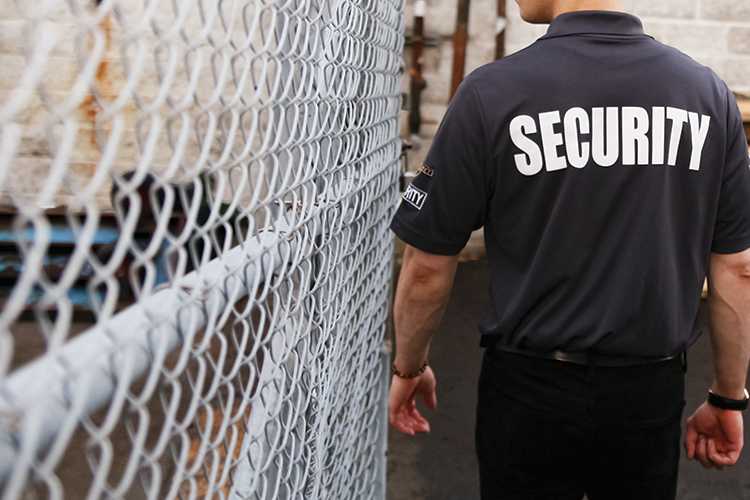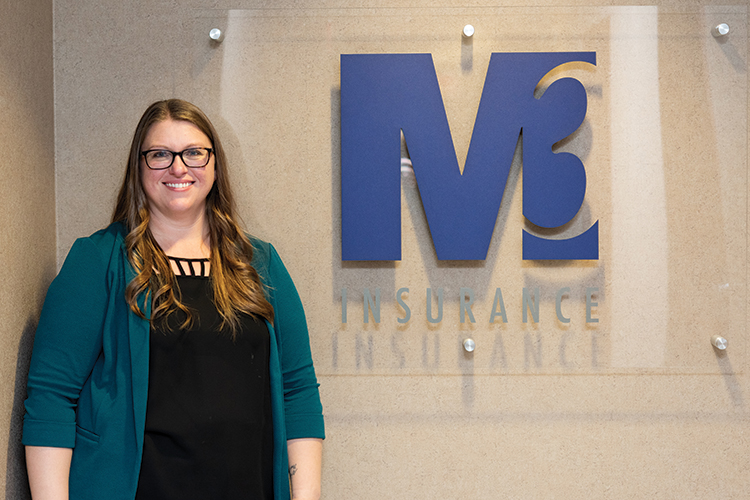INSURING SECURITY SERVICES
Success beckons for those able to find the right people and the right coverage
By Joseph S. Harrington, CPCU
A nation on edge makes for brisk business for security services—if they can find the right people for the job and acquire enough insurance to cover them.
“The need for security is greater now than ever before,” say Kelly Izzo Hafkey, senior sales executive for Izzo Insurance Services, which specializes in arranging coverage for private security services. “More private sector companies are seeking to use private security guards, often for the first time.”
Hafkey notes that many companies started using private security services to monitor vacant office buildings at the outset of the pandemic, and many of them retained such services even after staff returned.
Fears of social unrest and rising crime have added to the demand for private security services. The U.S. security services sector, amounting to roughly $50 billion in revenue, grew 2.8% per year on average between 2017 and 2022, according to the market research firm IBISWorld. That was faster than the overall growth of the nation’s economy, but slower than the rate for business administration, support services, and waste management.
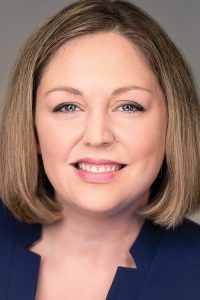
“The need for security is greater now than ever before. More private sector companies are seeking to
use private security guards, often for the first time.”
—Kelly Izzo Hafkey
Senior Sales Executive
Izzo Insurance Services
“With the increase in crime, especially in metropolitan areas, we are seeing private security used in place of or to supplement public law enforcement,” says Tory Brownyard, president of Brownyard Group, a program administrator that specializes in liability insurance for private security firms. “We are also seeing an increase in the demand in the bodyguard and executive protection sector of the business.”
Heightened demand for security services comes at a time when they, like most employers, are finding it difficult to attract and retain the most desirable people for the job.
“Since the start of the pandemic, it has been difficult for security companies to recruit, train, and maintain talent,” Hafkey says. She notes that security services carry a greater expectation for reliable performance than many other types of contractors.
“Security companies can’t say that someone won’t show up as scheduled without being in breach of contract and exposing themselves to potential claims,” she says. “Today, guard companies are relying heavily on existing staff to work extra hours to make up for labor shortages. These frontline heroes are facing long hours with little time off.”
Scrutiny of conduct
The tight labor market is also forcing security services to consider candidates for positions they may not have considered in the past, according to Jeff Moyer, vice president for the security guard program at Ryan Specialty National Programs.
“Security firms today encounter increasingly diligent underwriting scrutiny,” he says. “Hiring and management practices, including rigorous background checks, drug screening, and training, are more important than ever for this industry.”
The challenge is compounded by increased criticism of the conduct of security professionals, both public and private, according to Glenn W. Clark, CPCU, president of Rockwood Programs, which specializes in insuring private and public safety personnel.
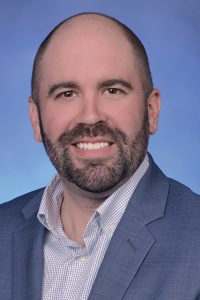
“Security firms today encounter increasingly diligent underwriting scrutiny. Hiring and management practices, including rigorous background checks, drug screening, and training, are more important than ever for this industry.”
—Jeff Moyer
Vice President, Security Guard Program
Ryan Specialty National Programs
“Recruitment in security occupations has been negatively impacted by images portrayed in our media,” he says. “High profile cases create a perception among rank-and-file security professionals that their employers do not always have their backs. Common security practices are being reevaluated in today’s highly emotional environment.
“All this, coupled with resignations and retirements, has made it challenging to find qualified candidates to keep up with demand.”
According to Clark, more than 40% of police officers “moonlight” as private security guards, many erroneously believing they are covered for personal liability by their public or private employer.
“However,” Clark notes, when police officers work as private security guards, “they are acting outside authority of their primary employment while taking payment from an entity that may not have extended their liability insurance to include security activities.” Rockwood has developed a “Patrol Protect” product to address this potential gap in coverage.
Enhanced scrutiny of security professionals has some benefits, however, in Brownyard’s estimation. As one such benefit, he cites the growing use of body cameras by private security guards.
“We see this as a positive development for a few reasons,” he says. “When being recorded, officers are more aware of their actions and follow protocol more closely. Also, in the event of a claim, everything is recorded and available. There is no ‘he said/she said,’ and the claims process is expedited.”
Lower limits and restrictions
In the midst of these challenges, security services face “the hardest market I have seen in more than 30 years,” says Brownyard. “The market is driven by large settlements awarded against security firms and an increase in active shooter claims.
“Many times, security firms are the first line of defense against active shooters,” he says. “If a security firm fails to stop the assailant, the resulting claims will most likely exhaust its policy limits.
“As a result, we have seen some insurers withdraw from this class of business while others have tightened their guidelines, reduced coverage and available limits, and increased rates.”
Hafkey of Izzo Insurance Services encounters the same.
“Some of our previous competitors have withdrawn from covering security services altogether or are offering coverage only at substantially higher premium with higher deductibles,” she says. “For example, we’ve seen one competitor increase minimum general liability premium to $100,000 for firms operating in litigious counties, regardless of the size of the company.”
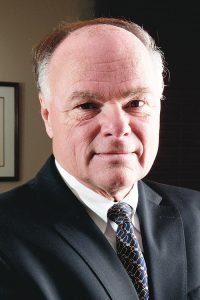
“Virtually everyone in the security space is re-examining their procedures. It’s only logical that some in security
may avoid intervening in a crisis for fear of the consequences.”
—Glenn W. Clark, CPCU
President
Rockwood Programs
Moyer of Ryan Specialty finds claim frequency in the security sector to be fairly constant, but claim severity to be rising. “There’s not a whole lot more claims,” he says, “but they’re a lot more expensive when they happen. The increased cost of claims is driving a tightening of the market.”
Hafkey and Moyer see carriers adding exclusions for particular types of security activities, such as large crowd events, events where alcohol is served, and security at airports and other transportation facilities.
These types of exposures aren’t necessarily ruled out, Moyer says, but underwriters want to know about them when a policy is underwritten and not be surprised by a claim for an activity that was not anticipated. Hafkey notes that restrictions on coverage for airport security have come about in light of widespread reports of unruly behavior by airline passengers.
As observers have noticed in almost all liability lines, Hafkey says carriers are seeking to minimize risk from a catastrophic loss. “Excess limits of $10 million used to be commonplace,” she says. “We are now seeing excess limits at a maximum of $5 million.”
“Virtually everyone in the security space is re-examining their procedures,” says Clark. “It’s only logical that some in security may avoid intervening in a crisis for fear of the consequences. This may be a time to establish and codify best practices to protect all parties in a security event. We are all looking for creative solutions.”
For more information:
Brownyard Group
www.brownyard.com
Izzo Insurance Services
www.izzoinsurance.com
Rockwood Programs
www.rockwoodinsurance.com
Ryan Specialty National Programs
www.ryanspecialty.com/programs
The author
Joseph S. Harrington, CPCU, is an independent business writer specializing in property and casualty insurance coverages and operations. For 21 years ,Joe was the communications director for the American Association of Insurance Services (AAIS), a P-C advisory organization. Prior to that, Joe worked in journalism and as a reporter and editor in financial services.

